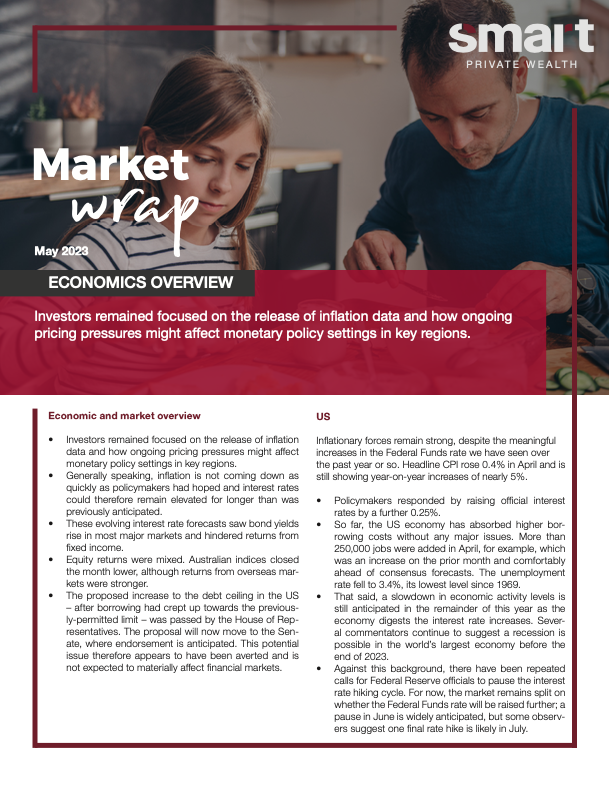Investors remained focused on the release of inflation data and how ongoing pricing pressures might affect monetary policy settings in key regions.
Generally speaking, inflation is not coming down as quickly as policymakers had hoped and interest rates could therefore remain elevated for longer than was previously anticipated.
These evolving interest rate forecasts saw bond yields rise in most major markets and hindered returns from fixed income.
Equity returns were mixed. Australian indices closed the month lower, although returns from overseas markets were stronger.
The proposed increase to the debt ceiling in the US – after borrowing had crept up towards the previously-permitted limit – was passed by the House of Representatives. The proposal will now move to the Senate, where endorsement is anticipated. This potential issue therefore appears to have been averted and is not expected to materially affect financial markets.

Smart Private Wealth are your partners in wealth accumulation, protection and management for today and beyond.
While the month began with constructive discussions and agreements between the US and some of its trading partners, uncertainty returned to the market after President Trump threatened to impose new tariffs on Europe and multiple large corporates such as Apple, Samsung and Mattel, and again near month-end as the Court of International Trade deemed the global tariffs to be “contrary to law.”
The investment market volatility that kicked off in March 2025 has felt like a punch, particularly for those in or nearing retirement.